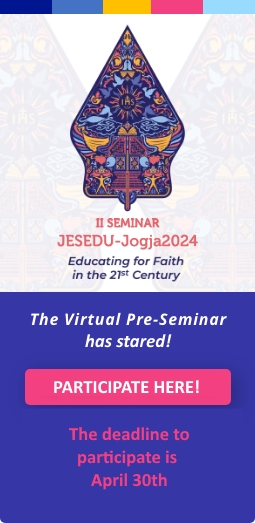Introduction
The plight of rural school teachers in India is a complex and multifaceted issue that requires a comprehensive understanding of the challenges they face. These teachers play a crucial role in shaping the future of rural communities by providing education to children who may otherwise have limited access to quality schooling. However, they often encounter numerous difficulties that hinder their ability to deliver effective education and lead fulfilling professional lives.
Addressing the challenges they face, such as inadequate infrastructure, lack of professional training opportunities, shortage of qualified teachers, socio-economic context, and logistical difficulties is crucial for improving the quality of education in rural areas. The same can be said of the rural Jesuit schools as well. Keeping this mind, the Conference Secretariat felt the need of positive interventions in the life & mission of rural school teachers. By investing in infrastructure, attracting qualified teachers, training the teachers to enhance their competency levels, promoting community engagement through networking & collaboration, and leveraging technology, it is possible to create an enabling environment that empowers rural school teachers to deliver effective education and positively impact the lives of their students. The Teacher Effectiveness Enhancement Program (TEEP) was specially designed as a Training of Trainers (ToT) program for a group of selected teachers from rural Jesuit schools.
Logistics
TEEP was conducted in six different places – Trivandrum, Patna, Ranchi, Matigarha, Hazaribagh and Pune under the four zones (South, North, West and Central). TEEP was organized by the Conference Secretariat for School Education (CSSE) in collaboration with PORTICUS from July – September, 2023 with an objective to reach out to the teachers of rural Jesuit schools with a unique professional development module to facilitate personal transformation and renewal. Around 280 teachers took part in TEEP.
Main objectives
- To familiarize with the Ignatian legacy & Jesuit education
- To improve the quality of education in rural schools
- To facilitate and promote inspiring teachers
- To develop lay collaboration & partnership in mission
- To familiarize & implement the recommendations of NEP 2020
- To sensitize all stakeholders about the Universal Apostolic Preferences (UAPs)
- To promote human excellence rather than academic excellence for a hope-filled future
The sessions were ably conducted with the help of PPTs by competent resource persons both Jesuits and non- Jesuits. During the sessions, enough time was given to the participants for questions & clarifications. The two and half day program was designed such a way that the participants could easily assimilate the concepts presented to them through introspection, group activities and reflective sessions.
A resource booklet in both English & Hindi was prepared by Fr. Norbert Menezes, SJ (PAT) for the training. Each participant was given a booklet at the start of the training program. The participants were also given all the PPTs used during the programs in order to facilitate their better understanding and implementation plans.
Taking TEEP Forward
A follow-up is an essential part of any process, whether it is a personal growth plan or professional development program. It can help you stay on track, make necessary adjustments, and ensure that you are meeting your goals and objectives. Taking TEEP forward envisages, a) Self- Audit as a participant of TEEP; and b) Plan of action to conduct TEEP in your school or schools of your province as a Trainer of TEEP. All the participants have been asked to complete the training programs (TEEP) in their respective schools by December, 2024.
Overall, conducting effective sessions for teachers requires careful planning, preparation, and delivery. By using engaging techniques, encouraging participation, and providing feedback and follow-up, a trainer of TEEP can help other teachers improve their teaching skills and contribute to the overall success of the school.
Conclusion
TEEP provided an opportunity for many of the teachers to attend such type of training program outside their schools for the first time. One of the participants remarked, “TEEP helped me to introspect, inquire and re-invent”. The same sentiment was shared by many. Having attended all the six TEEPs, I could easily observe the positive impact on the participants at the end of the program. I can confidently state that TEEP helped the participants to re-connect with themselves, others, God and the cosmos. It has also challenged them to read the signs of the time and act accordingly.





